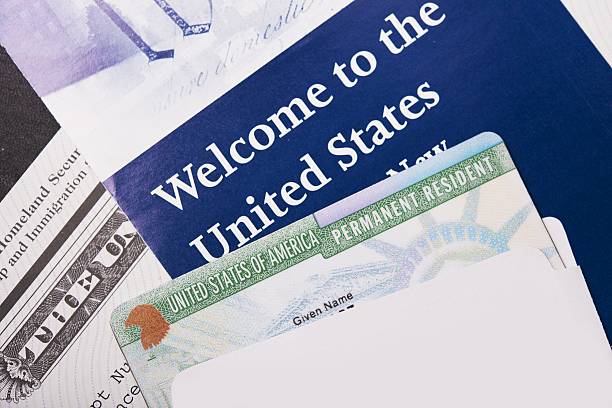Lawyer in Louisiana: How to Find a Reliable Specialist?
A lawyer in Louisiana is a certified legal expert who assists both individuals and businesses. They provide consultations, represent clients in court, prepare contracts and legal documents, and handle cases of varying complexity. Depending on the specifics of the case, attorneys may specialize in family, criminal, immigration, corporate, financial, or real estate law. Choosing a lawyer should align with the nature of your issue.
Popular Legal Services in Louisiana
In Louisiana, legal support is in demand among residents facing legal challenges in their personal or professional lives. Lawyers in the state have the necessary qualifications to assist in a wide range of situations. The most common services include:
- Family Law — divorce, property division, child custody, alimony, prenuptial agreements.
- Immigration Law — assistance with visas, green cards, U.S. citizenship, deportation defense.
- Criminal Law — defense in criminal cases, appeals, representation of defendants in court.
- Estate and Property Law — handling inheritance, real estate transactions, legal disputes over ownership.
- Tax Law — tax assistance, defense in disputes with tax authorities.
- Corporate Law — business registration, contract preparation, legal support for companies.
- Labor Law — resolving labor conflicts, protection of employee and employer rights.
- Bankruptcy — legal assistance during bankruptcy for individuals and legal entities.
- Medical Law — disputes with medical institutions, compensation for health damages.
- Transportation Cases — traffic accidents, auto insurance lawsuits.
Thanks to the experience of local lawyers, Louisiana residents can quickly receive effective legal support in cases of any complexity. Each of these areas requires in-depth knowledge and a professional approach.
Legal Features of the State of Louisiana
Louisiana has a unique legal system based on civil law, unlike the common law used in most other U.S. states. This significantly affects case handling and the structure of legal procedures. Here are some key features:
- Tax Conditions — Louisiana has its own taxation system that reflects the state’s specifics and can impact business processes and personal finances.
- Civil Law — the state has its own Civil Code, which influences the interpretation of legal norms in cases involving property, contracts, inheritance, and more.
- Judicial System — Louisiana has district courts, appellate courts, and a state Supreme Court. The local system includes certain procedural features that are important to understand.
- Gun Regulation — there are strict rules regarding the possession and storage of firearms, which must be considered in criminal cases.
- Property Law — real estate transactions and inheritance cases in Louisiana may require the involvement of an experienced attorney due to the complexity of documentation.
Understanding the legal features of Louisiana allows for better preparation for legal processes and helps avoid unforeseen difficulties. A professional consultation with a local lawyer will help take all important nuances into account.
Conditions for Providing Legal Assistance
The provision of legal assistance in Louisiana depends on the type of case, the amount of work involved, and the mode of communication with the client. To receive quality services, consider the following:
- Consultation Format — lawyers can work both in-office and online, which is especially convenient for clients from remote regions or other states.
- Availability of Documents — for effective analysis of the situation, the lawyer needs all available documents related to the case.
- Agreement Signing — cooperation should be formalized in writing: this ensures transparent terms, including payment, deadlines, and obligations of the parties.
Following these conditions ensures effective legal assistance and protects the client’s interests within Louisiana’s legal framework.
What Affects the Cost of Legal Services in Louisiana?
Attorney fees in Louisiana may vary depending on several factors. The main ones include:
- Case Complexity — the more time and expertise a case requires, the higher the cost.
- City Where the Case is Handled — in cities like New Orleans or Baton Rouge, rates may be higher than in less populated areas.
- Attorney’s Experience Level — lawyers with significant experience and specialization usually have higher rates, which are justified by greater efficiency.
Considering these factors, it is important to choose a lawyer based not only on price but also on the quality of legal assistance.
How to Choose a Lawyer in Louisiana?
Finding a lawyer in Louisiana should be a thoughtful and step-by-step process. Here are the key steps that will help you select a competent specialist:
- Determine the Area of Law — choose a lawyer according to the nature of your case: family, immigration, criminal law, etc.
- License Verification — in Louisiana, every lawyer must be registered with the local bar association.
- Experience — having a positive track record in similar cases is a strong reason to choose a particular lawyer.
- Client Reviews — analyze real reviews and ratings from online sources.
- Initial Consultation — take advantage of the opportunity to talk to the lawyer to evaluate their approach to your case.
- Transparent Terms — pay attention to clear wording in contract terms and pricing.
By following these tips, you can find a professional lawyer in Louisiana who will effectively assist with your legal matter.
Finding a lawyer in Louisiana is an important task that requires attention and analysis. Consider specialization, experience, reputation, and terms of cooperation. This approach will help you receive quality legal support and protect your interests in accordance with state law.














































